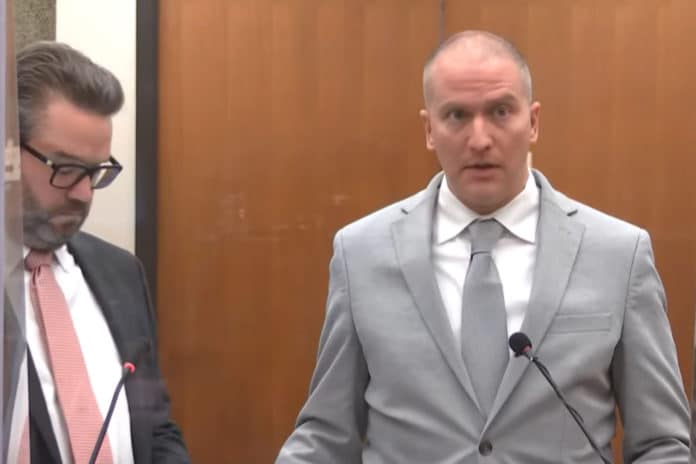
A federal judge has concluded an investigation into determining who illegally leaked to the press confidential grand jury information about Derek Chauvin’s federal indictment.
The investigation did not turn up any evidence of who the leakers were.
In a district court order from Friday, Chief Judge Patrick Schiltz wrote that thorough inquiries of the agencies with access to the grand jury materials (the Minnesota Attorney General’s Office, the U.S. Department of Justice, the United States Marshals Service, and the FBI) yielded no evidence of the leaks’ sources.
“The Court is disappointed that the sources of the grand‐jury information were not identified, particularly because one or more of those sources may have committed a crime and may have been a prosecutor or law‐enforcement officer who had sworn to uphold the law,” Judge Schiltz wrote.
Federal criminal procedure law prohibits the unauthorized disclosure of matters pertaining to a grand jury, and known violators can be charged with contempt of court.
Both federal and state investigators reviewed hundreds of documents and interviewed over 100 people with access to, or knowledge of, the grand jury materials. The investigators obtained sworn declarations, binding under penalty of perjury, in which virtually every individual attested that they did not leak confidential information to the press, or had no knowledge of the confidential information in question.
In his explanation of why the leakers could not be identified, Judge Schiltz cited the “extraordinarily large number of people” with access to the grand jury information, as well as the DOJ’s limits on obtaining “information or records from reporters.”
“Thus, the FBI was blocked from obtaining evidence from the reporters, who, of course, almost certainly knew who had provided grand‐jury information to them,” Schiltz said.
The leaked grand jury information was used in a New York Times article from February 2021 on the formation of the grand jury investigating Chauvin, as well as a Star Tribune article from April 2021 on the impending federal indictments of Chauvin and three other former Minneapolis police officers for violating the civil rights of George Floyd in May 2020.
Minneapolis attorney Scott Johnson called the result of the investigation “one more abuse of justice in the dual prosecutions of Derek Chauvin” and accused the Star Tribune of “protecting the illegal misconduct of law enforcement from disclosure.”
“There was no arguable public purpose supporting the leak. It was simply gratuitous. The Star Tribune knows who the perpetrator is with respect to [reporter Andy] Mannix, but they aren’t talking,” he wrote in a Power Line blog post.
Randy Lebedoff, senior vice president and general counsel for the Star Tribune, told the paper he was “glad the court has ended this costly and intimidating hunt for information which was always protected under the First Amendment.”
Chauvin was sentenced to a combined 43.5 years in prison on his state and federal convictions. He will serve the sentences concurrently, however, and so will be released at the conclusion of his 22.5 year state sentence. The three other former officers — J. Alexander Kueng, Thomas Lane, and Tou Thao — have also been convicted in federal court of violating Floyd’s civil rights.
Lane has pleaded guilty in state court to aiding and abetting second-degree manslaughter. As a result of Lane’s guilty plea, prosecutors agreed to drop the charge of aiding and abetting second-degree murder.
Kueng and Thao, however, are still facing trial on aiding and abetting second-degree murder, though the beginning of the trial has been pushed back.

















